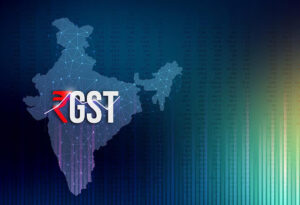Fixed deposits have grown to popularity among Indian investors due to benefits like assured return rates, ease and convenience of making deposits, and safety of investment. While there are a myriad of investment avenues open to an Indian investor today, not everyone is willing to meddle with market risks and fluctuations. At any given point of time, a fixed deposit investment seems like a safe bet for a common man’s savings diet. But there are a certain things to consider before you start investing in a fixed deposit. Let us look at the top 5 questions to be addressed before opening a fixed deposit account.
Can FDs outgrow inflation to meet long-term goals?
Fixed deposit interest rates in banks range from 6.6% to 7.5%, whereas corporate FDs cover around 7.5% to 9%. The question to be addressed here is that will a 7% growth of capital be able to substantiate for your future goals, such as buying a dream home, or sufficing for your child’s education? The answer to that lies in the inflation rate, which is currently in the 5% range. When you consider your real return after the effect of inflation rate, you would see that your return comes down to a mere 2%! Now, the erosion effect of inflation cannot be observed directly. The bank will pay the contracted rate of interest on your FD, yet the effect is real when you look into the purchasing power of your FD at maturity.
Are FDs the tax-efficient way to meet your goals?
The interest on your FD is taxable according to your income tax bracket. If you fall in the 30% bracket, the interest income is to be taxed at a higher rate. Thus, taking tax and inflation into consideration, your real return could go on the negative side. Also, once your income crosses a threshold, there also rises the threat of TDS deduction.
Can you access your savings before maturity?
Your fixed deposit is locked for a particular period of time. But in case of emergency, you are allowed to break the FD, with a penalty charge. Typically, 0.5%-1% rate is charged as penalty on the applicable interest rate. The interest rate applicable in case of premature withdrawals is lesser than the rate of interest applicable for the period of deposit which has actually remained with the bank and the original contracted rate.
Are FDs absolutely free of risks?
FDs have an insurance cover, so often they are considered as completely risk-free. However, you must take note that an insurance cover on FDs is only covered till 1 lakh of your deposits. In case banks are badly flouting in their lending policies, amass NPAs of huge scale can put depositors’ money at risk. IN case of corporate deposits risks are even more. Higher the interests, higher the risks!
Can you achieve adequate diversification?
You may not want to keep a crore of rupees in just one fixed deposit account. You may want to diversify your portfolio and maintain several avenues of investment at the same time. But come to think of it, won’t that make your life even more difficult? You need to then keep track of multiple interest rates, maturity dates, liability dates, etc.
So, once you have found the right answers to these questions, you may start investing in a fixed deposit. Make sure you do a thorough research on fixed deposit interest rates before opening a fixed deposit account.



















Be First to Comment